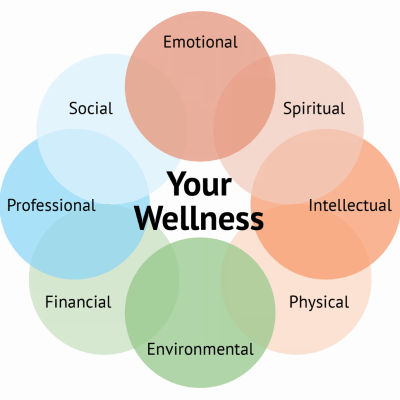Alcoholism can be beaten. Find new hope in highly effective and focused alcoholic rehabilitation programmes by Recovery Direct – South Africa.
Understanding Alcohol Addiction
Help with alcohol addiction
If you are unsure about whether you or someone you care about has developed an alcohol problem requiring treatment, please contact us for a clarifying conversation, either by phone or by appointment.
At Recovery Direct you can have a chat with one of our professional therapists about how alcohol affects you or your life, and about your options for getting help.
Addiction to alcohol is commonly referred to as alcoholism.
Alcoholism is characterised by a strong, often obsessive, need to drink alcohol, loss of control over drinking habits and development of a strong physical and psychological dependence on alcohol.
Alcoholics and alcohol abusers develop a high tolerance for alcohol, making it necessary for them to progressively increase the volume they drink, in a single sitting, to reach the same degree of intoxication.
A leading health institute advises against taking more than 5 drinks on a single occasion. They further advise a maximum of 7 units per week for women and 14 units per week for men. A unit is roughly equal to one ordinary beer. Alcoholism is, however, mainly defined by it’s physical, psychological and social consequences, rather than the number of units consumed.
How to know if you are an alcoholic
For those who prefer further preliminary evaluation, we have compiled more tangible signs of alcoholism below. These can be more easily answered with an honest “yes” or “no” to determine whether professional guidance is required.
We recommend that you – preferably with your partner – go through the list and honestly mark the symptoms you (or your partner) have experienced.
Secret drinking : You sometimes hide a bottle or drink when others will not see it. You deny being secretive when confronted.
Drinking alone : Drinking is no longer just a social thing – you overindulge when you are alone.
Loss of control : You find it difficult to stop after you have started. The need to continue is stronger than your self control.
Family complaints : Your family finds your drinking embarrassing, uncomfortable, stressful.
Defensive : You adopt a defensive or dismissive attitude when somebody wants to talk about the problem.
Broken promises : You promised to reduce consumption, then resumed after a short while.
Drunk at parties : You routinely drink too much on festive occasions – your family finds it shameful and embarrassing.
Blackouts: Sometimes you have memory lapses or do not remember important things you did while you were intoxicated.
Routine drinking habits : You have established fixed drinking routines, e.g. every day after work, every weekend, etc.
Failed attempts : You made several attempts to get your drinking under control – without success.
Morning after drink: You sometimes need a drink to start the day – after drinking the previous day.
Daily life : You suspect that someone noticed your intoxication at an inappropriate or embarrassing moment (for example; during a business call). You feel embarrassed about it.
Family arguments: Your family members have heated discussions about your drinking.
Family isolation: Your dearest ones avoid inviting their friends to your home, because they fear your drinking may embarrass them..
Guilt: You sometimes feel guilty about your drinking.
Character switch: You adopt an opinionated or unpleasant attitude when under the influence of alcohol.
When you have identified 4 or more positives it is highly likely that you (or your partner) have developed an alcohol problem requiring professional guidance.
Alcohol addiction typically requires further investigation and thorough discussion with a trained alcohol abuse expert.
Consult our inpatient alcohol treatment centre for assistance with alcohol issues. Specially trained staff will provide advice, treatment and therapy counseling for a better life.
Fast Facts on Alcohol Addiction
Alcoholism is not due to character flaws in a person
One of alcohol’s effects is the degradation of a person’s mental abilities, which can lead to irresponsible, inappropriate or violent behaviour (even in those who do not suffer from alcoholism). This feeds the persistent and misguided general prejudice that alcoholics are characterless and sort of “morally lacking”.
The underlying causes of alcoholism are combinations of the individual’s psychological, social and genetic conditions. Because these conditions differ from person to person, it requires expert knowledge and personal attention to analyse and treat the condition.
Summary of criteria for alcoholism
- Prioritising drinking over other activities
- Increased tolerance to alcohol’s effects
- Frequent absenteeism due to withdrawal symptoms
- Taking alcohol to alleviate withdrawal symptoms
- A subjective urgent need to drink
- Relapses, even after lengthy voluntary abstinence
Once a person has developed alcoholism, even a brief return to taking small quantities of alcohol can trigger a relapse and reinstate the craving for alcohol to a state of high intensity. This hypersensitivity makes complete and lifelong abstinence necessary, since the use of alcohol is at odds with the person’s physiology.
Although not everyone is equally susceptible, alcoholism is widespread, worldwide. Global consumption of alcohol has increased greatly over the years, especially in the Western world. Millions of people have developed alcohol related problems and countless families have members suffering from alcoholism.
Transition from alcohol abuse to alcohol dependence
Alcoholism does not develop overnight. It gradually progresses from overconsumption of alcohol, to alcohol abuse and, eventually, to alcoholism. There is no timetable or guideline that shows how long the process will take. It varies from person to person – For some it may take a long time, whilst others will succumb rapidly.
One of the problems with alcohol addiction, is that alcoholics, themselves, usually find it difficult to grasp the seriousness of their own problem. The gravity of the abuse, so obvious to others, is often difficult for the addict to accept, especially in the early stages. As such, much time is wasted in grappling with issues of denial and uncertainty. By the time the condition reaches a critical phase, a lot of damage had already been done.
Diagnostic criteria for determining alcohol dependency
- An overwhelming urge or craving for alcohol, caused by a variety of underlying triggers.
- Loss of control: A dysfunction that causes alcoholics to lose mental control over when to stop drinking.
- Impaired ability to fulfill family, work and social obligations, due to the immediate and after effects of overindulgence, as well as the drinker’s tendency to postpone obligations in favour of drinking sessions.
- Repetitive drinking sessions, even when aware of the negative consequences of continued excessive drinking.
- Enhanced tolerance: Over time, the person has to take progressively more drinks per session to experience the same feeling they had felt on previous occasions.
- Withdrawal symptoms: Extreme discomfort, headache, restlessness, rapid pulse, nausea, trembling.
- Blackouts: Complete loss of memory about relatively long moments in time when the alcoholic was intoxicated, but moved around and spoke in a seemingly conscious manner.
- Morning drinking to counteract the withdrawal symptoms: Alcohol is, arguably, the fastest and easiest way for heavy drinkers to temporarily overcome the dreaded morning-after feeling and to restore themselves to a (false) sense of well being.
Alcohol abuse often has fatal consequences
Alcohol is a harmful toxic chemical and it also exposes the drinker to other fatal diseases. It has a negative social impact. It increases the risk of accidents and physical injury. It is not only a debilitating condition in itself, but is very often terminal, due to the wide variety of associated risks.
If you have experienced three of the above mentioned symptoms within one month in the past year, that is a sign of alcoholism.
The problem with the above diagnosis is that it may be difficult for patients to analyse themselves and to decide whether they meet the criteria. Even family members and other loved ones sometimes find it hard to make the distinction, or even to face reality when the result indicates alcoholism.
Alcoholics are the last to admit their alcoholism
It rarely happens that alcoholics admit their own problem. It is important that a family member, friend, relative, colleague or trustworthy person intervenes and helps the alcoholic to get the necessary treatment.
Alcoholism does not cure itself – no matter how much you may want it to. It is a complicated subject that requires professional help.
South African abuse treatment statistics show that 75% of alcoholics go for therapy because families, loved ones or employers had acted and had demanded treatment as a condition for continued relationships.
Relatives of alcohol abusers
It is emotionally painful to live with an alcoholic. Feelings of anger, despair and fear of the future are common concerns for partners (and children) of alcoholics.
Unfortunately, when relatives attempt to talk to the abuser about the problem, it leaves the relatives feeling exasperated and powerless. Addicts either dismiss their complaints as exagerations, or ward them off with manipulative arguments. In worst cases, they may even resort to aggression and violence.
If you find yourself in a similar position, please contact us on 081 444 7000 to talk about what you can do.
Treatment of alcohol abuse
If you have developed alcohol dependence, you need professional help – willpower alone is not enough.
To do away with alcohol abuse, one must understand the underlying mechanisms, learn about high-risk situations, how to deal with alcohol cravings, how to approach social events, mend relationships, deal with prejudice, restore dignity and confidence, etc. It requires much more than simply refraining from drinking.
Education is an important part of treatment for alcohol abuse
Alcohol abuse and antabuse
Antabuse treatment can be an aid in early sobriety, but Antabuse is not therapy and is not curative in itself. It is brute suppression of a symptom, rather than root therapy. If not combined with actual therapy, it has no lasting effect.
Heredity – a risk factor for the development of alcohol abuse
Children of alcoholics are at increased risk of developing alcohol abuse themselves. It is estimated that approximately 7-8% of people develop alcohol dependence at some point in their lives – for children of alcoholics, this figure is around 25%.
Well-educated are more likely to abuse alcohol
A good job is not a defense to alcohol abuse.
There are many misconceptions about the foundations of alcoholism. This includes poor upbringing, poor social conditions, character flaws, lack of willpower, etc.
The true fact is that alcoholism hits everywhere, regardless of social standing, education, income, environment or education.
Recent studies by social research institutes show that, among those who have education of 10 years or less, approximately 10% develop alcohol problems, while for those who have more than 10 years of education it is 15%.
Physical damage of alcohol abuse
Alcohol damages the liver, pancreas, kidneys, heart and other parts of your anatomy. It also dramatically increases your cancer risk. You are at greater risk of being involved in accidents and injury. As alcohol abuse progresses, your lifespan decreases incrementally.
Children of alcoholics
When you grow up with an alcohol abuser, you have a good chance of carrying the burden well into adulthood. Children of alcoholics have difficulties with intimate relationships – even as adults.
The list does not stop there. Children of alcoholics typically develop personality traits which last into adulthood, unless they receive corrective therapy. For example, when you grow up in a family living with alcoholism, insecurity is a dominant factor in your life.
Of course, there are differences in how much children are influenced. The degree of abuse, the family’s ability to retain it’s structure and the child’s natural resilience all influence the extent to which the child is affected by a parent’s actions.
Nevertheless, certain personality traits often recur in children who are exposed to alcoholic parents.
Get Help With Alcohol Addiction also see AlcoholAddiction.co.za
If you are suffering from an alcohol addiction, seeking professional help can help you regain control of your life and achieve long-term recovery. It is critical to find a qualified and experienced professional who understands the complexities of alcoholism and can assist you in navigating the challenges that come with it.
Alcohol use disorder is very often a complex issue that can have serious consequences for your physical, mental, and emotional health, as well as your relationships and overall quality of life. Seeking assistance from a professional who has worked with people who have alcohol use disorders can provide you with the support and guidance you need to overcome addiction.
Therapy, medication, support groups and other forms of care can all be used to treat alcohol related issues. Working with a professional who understands the unique challenges of alcohol and can tailor treatment to your specific needs can improve your chances of success significantly.
Remember that seeking help is a brave step towards a healthier and happier version of yourself. Anyone can overcome alcohol addiction and achieve long-term recovery it all has to do with making the descision to start recovery with the right support and care.
Other Medical Conditions Caused by Alcohol Use Disorders
Timeout to Re-focus, Re-centre, Rejuvenate
Find clarity and re-gain emotional stability from anxiety & stress
Recovery Direct Executive Care is an evidence-based wellness program designed around you
Executive Environment
The pressure to lead, inspire, make decisions, be a role model, a parent, a mindful partner or supportive friend can come at the cost of your mental health and wellbeing. You are forever showing up for other people, meetings, calls and commitments, yet how often are you showing up for yourself?
Recovery Direct is an exclusive evidence-based care centre that is dedicated to confidentially restoring your mental vitality and physical balance and wellbeing. We give you the time, space and guidance to reflect, plan and decide your next move.
Specialised therapeutic support gives you unbiased, professional insights into emotional struggles, relationships and behaviours. Everything managed in a safe, supportive and holistic executive wellness retreat.


Individual Attention
- Process thoughts in a constructive manner
- Space for reflection
- Redefine goals and priorities
- Gain a new perspective on your internal thought processes
Meditation, Yoga, Stretching and Breathing
- Improve self-regulation and self-awareness
- Increase your ability to focus
- Improve sleep
- Assist the body in processing life experiences


Therapeutic Massage
- Completely unwind and de-stress
- Remove blockages and relax muscles
- Feel nurtured
Restorative Gourmet Meals
- Prepared by skilled chefs
- Nutritionally dense and restorative
- Cater to your special dietary requirements


Private Luxury Suites
- Private suites with full amenities
- Private desk space and wifi (fibre)
- Tea/coffee making facilities and mini-fridge
Time to prioritise yourself
Harness the mental agility to manage your life again. Fine tune your mental-health and wellbeing inside of South Africa’s leading care centre.
























